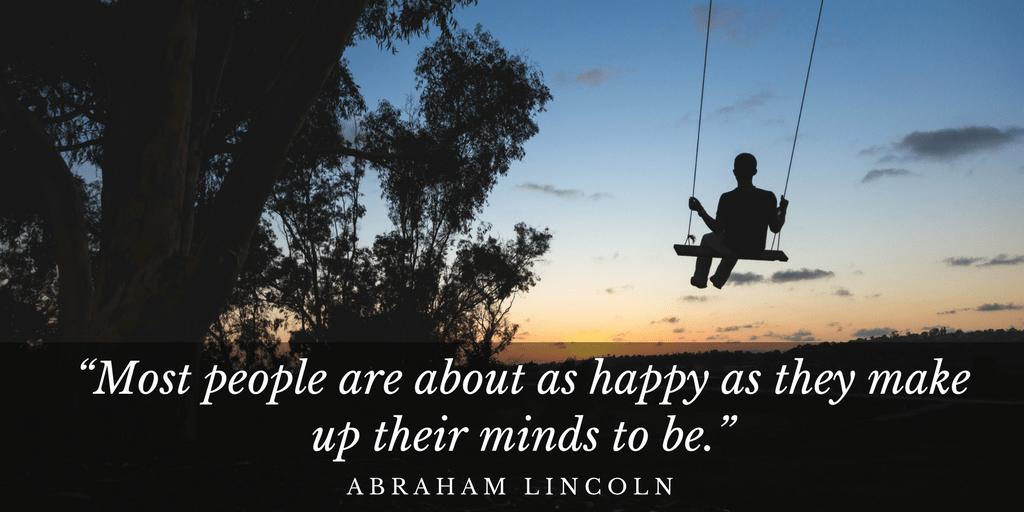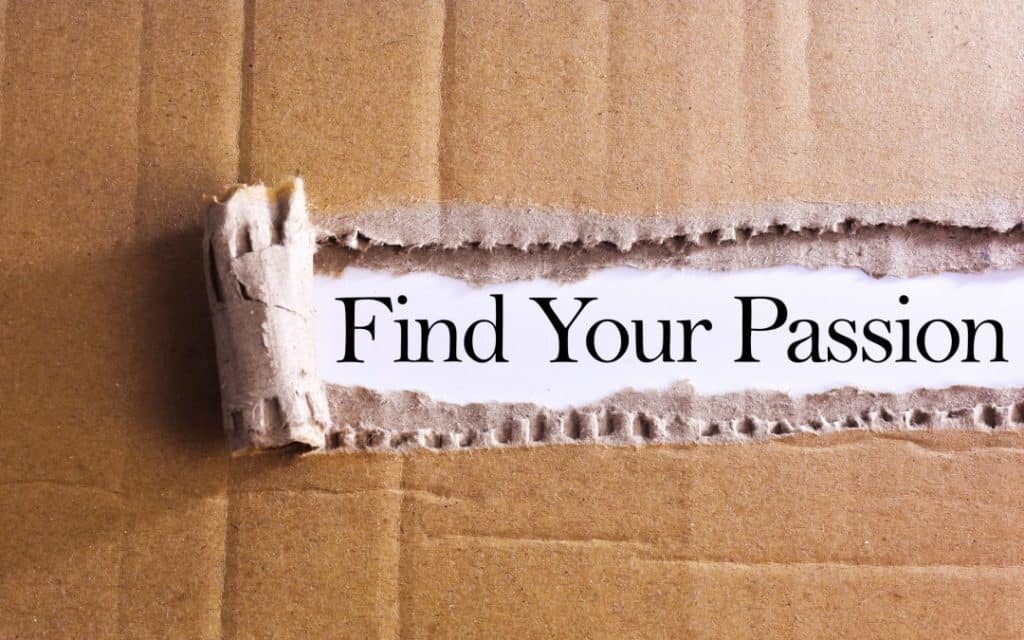In 1984, a driver heading to San Francisco approached a toll booth. They heard loud music. It sounded like a party or a Michael Jackson concert. Looking around, no other cars had their windows open. Inside the booth, the man was dancing. ‘What are you doing?’ the driver asked.
‘I’m having a party,’ he said.
‘What about the rest of those people?’ looking over at the other booths.
‘They’re not invited.’
The driver had a dozen other questions, but somebody in a big hurry started punching their horn so he drove off.
Months later the driver found him again, still with the loud music, still having a party. Again he asked, ‘What are you doing?’
He said, ‘I remember you from the last time. I’m still dancing. I’m having the same party.’
The driver said, ‘Look. What about the rest of the people?’
He said, ‘Stop. What do those look like to you?’ He pointed down the row of toll booths. ‘They look like toll booths.’
‘Nooooo. Use your imagination!’
The driver said, ‘Okay, I give up. What do they look like to you?’
He said, ‘Vertical coffins.’
‘What are you talking about?’
‘At 8:30 every morning, live people get in. Then they die for eight hours. At 4:30, like Lazarus from the dead, they reemerge and go home. For eight hours, their brain is on hold, dead on the job. Going through the motions.’
The driver sat in amazement. He could not help asking the next question: ‘Why is it different for you? You’re having a good time.’
The dancing toll booth operator looked at him. ‘I knew you were going to ask that,’ he said. ‘I’m going to be a dancer someday.’ He pointed to the administration building. ‘My bosses are in there, and they’re paying for my training.’
Sixteen people dead on the job, and the seventeenth, in the same situation, figures out a way to live. That man was having a party where you and I would not last three days.
Later they met up for lunch and the toll booth operator said, ‘I don’t understand why anybody would think my job is boring. I have a corner office, glass on all sides. I can see the Golden Gate, San Francisco, the Berkeley hills; half the Western world vacations here and I stroll in every day and practice dancing.’”
~ Author Unknown
I know one thing for sure about happiness. It’s complicated.
Scientists describe happiness as having satisfaction and meaning in life. When we’re happy we have positive feelings and the negative ones, don’t seem to affect us as much.
The question then is what makes us happy? Is it a job, money, family, material possessions, relationships?
Buying Happiness
Let me start with the things that don’t bring happiness. First on the list are material possessions.
I can look back over the last forty years and list out all the things I bought that I thought would make me happy. A new sports car, new clothes, new gadgets, the list goes on.
Spending money on these things does create short-term enjoyment, but it doesn’t last. It’s a trick our body plays on us. When we buy things we want, hormones get released that give us a little shot of happiness. Once the hormone works through our system, that happiness starts to fade.
As I acquired more and more, the feeling of joy would get shorter and shorter. So while my body worked against me in the beginning, it was now trying to tell me to give up pursuing more stuff. Happiness can’t be bought at Amazon.com or in a store.
‘More’ Happiness
The idea of getting more isn’t limited to buying stuff. I had a ‘more’ mindset in a lot of areas. I wanted a better paying job, a more significant title, and more money.
My thought was that ‘more’ would make me happier. And then it happened. I got the promotion and a larger salary. When it happened, I should have felt like a million bucks. But I didn’t feel a thing.
Now that I can look back at these times, I can see that the journey I took delivered the happiness. The result was almost sad because I knew that ride was over. Too often I would get fixated on the goal and forget to enjoy the road I was on.
Money and Happiness
Don’t think for a second that money and happiness aren’t connected. They are, but not in the way most people imagine.
There has been a lot of research on this topic. For example, if someone is living in poverty, making more money will bring more happiness, to a point. Studies show that after earning $75,000/year, happiness doesn’t increase with income.
In other words, money doesn’t buy happiness. But, it can reduce stress which helps make room to be happy. For example, knowing that we have money saved for a rainy day lets me sleep better at night.
The first question with money is how much is enough? The second question is how much will it cost to earn that money?
Most of the time the answer to the first question is not a specific number, but rather ‘more.’ It gets complicated when we look at the cost of making more. For me, I know there are a lot of ways I can make more money. But I am also aware of what it will cost me in time with my family and other things that bring me happiness.
When I answer both questions, it gives me a clear view of what my target should be and what I’m willing to pay to get there.
Future Happiness
For some reason, happiness is something we strive for vs. something we are. It’s easy to fall into the trap of ‘I’ll be happy when.’ I’ll be happy when I have more money, a cooler car, a bigger house, a better title or more stuff. But it never happens.
A lot of this comes from social pressures. Everywhere I look everyone is getting more. If everyone else is doing it, it must be good, right? Wrong!
When I compare myself to those around me, all it does is create stress and negative feelings. If someone else is buying a cooler car, I should be able to do that. If not, I need to work harder and make more money. It’s a downward spiral to emptiness.
Over time I figured out that my happiness has nothing to do with what others are doing or have. By focusing on what matters to me, I could let go of the ‘more’ mindset.
Choose Happiness
I’ve also learned that even if I capture happiness, it doesn’t always stick around. Things like worry, stress, anxiety, and fears have a way of dampening any feelings of joy.
But it is possible to see these thoughts creeping in and work to get back on a path that limits these emotions. It’s not always easy, but it is possible.
In fact, our minds are so powerful, that being happy is a choice. I can choose how I look at a situation or how I react. I can be the dancing toll booth operator or the walking zombie.
Of course, somedays will suck, and there is no amount of thought or energy that will change the situation. I remember days like this, losing someone in my family, 9/11 or getting a piece of terrible news.
Sadness will come, and that’s OK. Those feelings are important. But we can’t live in that place forever. It’s important to let those feelings come and then let them go.
100% Happy
People often talk about balance in life. The idea is that balancing work and life will deliver happiness. I’m not a big fan of the concept because it means that I need to trade off one for the other.
Instead, I like to think about creating happiness in every area of my life. I want to do work that I love. I want to enjoy every minute with my family. I want to contribute to my community. I want to do things for myself that make me happy.
But conflicts are inevitable. Sometimes work takes me away from being at home. As long as this is a short trip here or there, things are OK. If this were to turn into 3-4 days away from home every week, I would have a problem. Being clear about what brings me happiness helps me manage these conflicts.
Sometimes these conflicts persist, and it requires change. I was faced with this situation when I was on City Council. I had served for six years, and at the time I was also the CEO of a startup, running a non-profit and had two young kids at home.
If I kept doing it all it would mean giving up time in an area that brought me the most happiness. The only solution was to walk away. There was no way to balance my situation.
I have yet to figure out a happiness goal. Should I be happy 50% of the time? 70%? I’m not sure.
I know being happy 100% of the time is impossible. In fact, it’s a good thing we can’t reach this state. If everyone did, there would be no progress in the world. All I know for sure is that more happiness is better than less.
A Life Well Lived
For me, happiness comes with a feeling of fulfillment. It’s not about wanting ‘more’ but rather enjoying ‘more.’ I need to enjoy the journey, rather than always seeking a new one. I need to be grateful for what I have, rather than always thinking I deserve more.
I’m a lucky guy when it comes to happiness. Some might say I’m rich, but my wealth has nothing to do with money. I have something worth far more.
-
I have a great marriage
-
I have a wonderful family
-
I have great friendships
-
I can give to others
-
I live in a terrific community
-
I have a job that lets me create
-
I can learn new things
-
I have financial stability
And guess what, having more in any of these areas won’t make me happier, but enjoying them will.
This post is part of a series of letters to my kids. My goal is to reflect on and capture as many life lessons as possible. Here is the current list I am working from.



